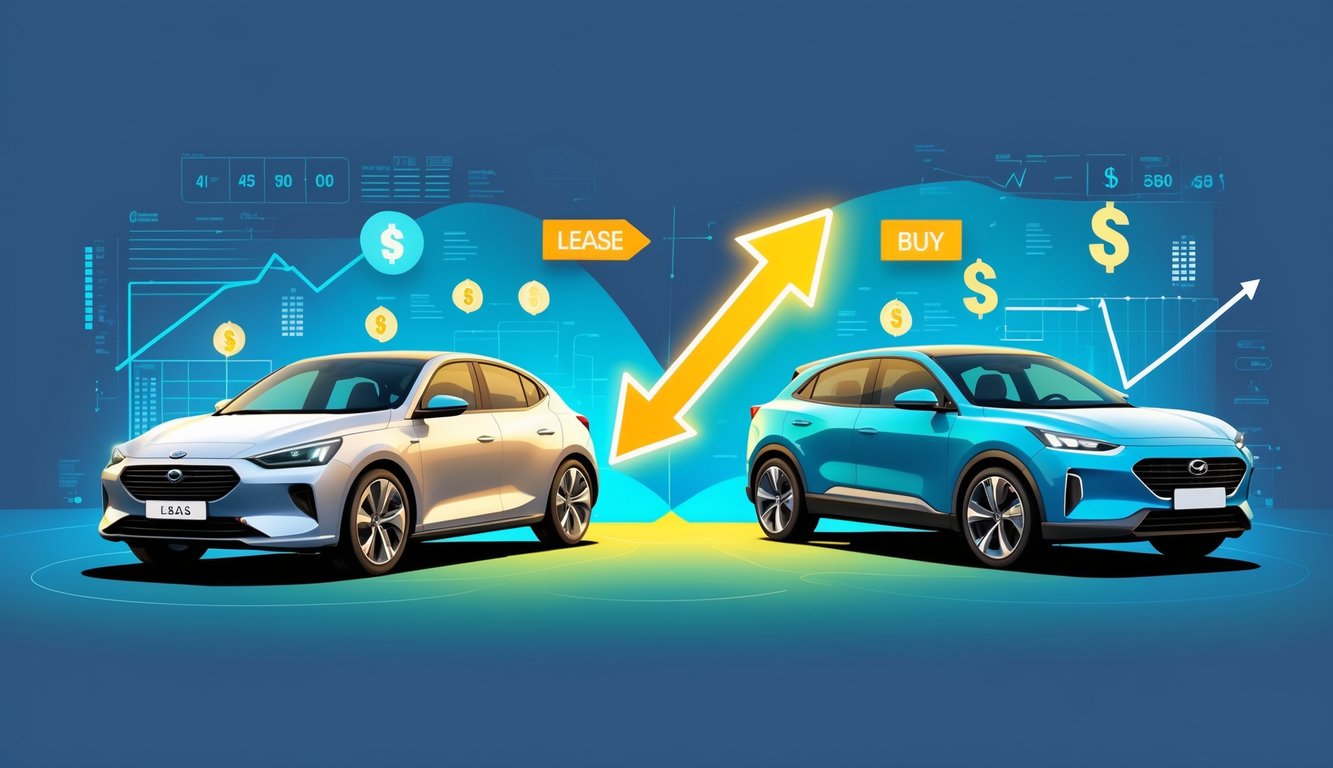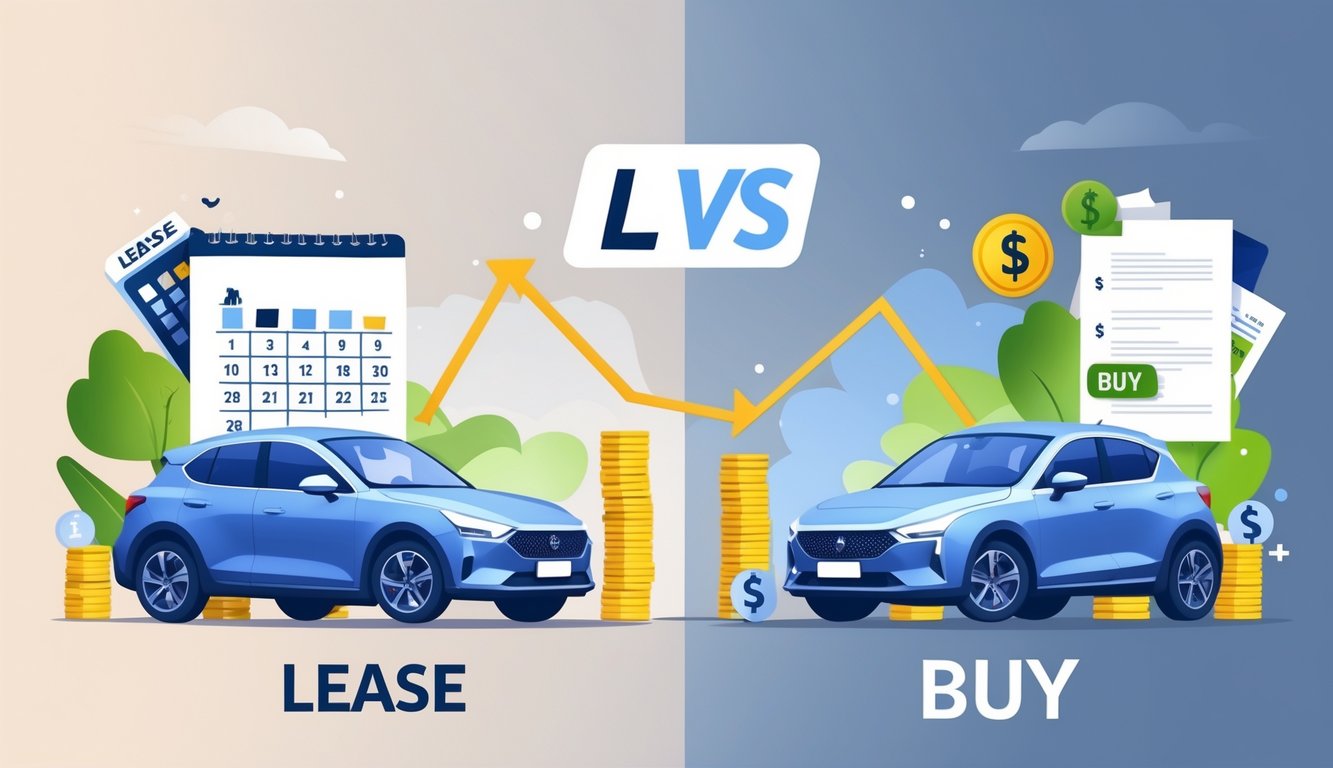
Why does this keep happening? Seriously, three years ago, everyone at work acted like leasing was for suckers—“throwing away money,” they’d say, as if buying was the only thing a responsible adult would do. Now I’m knee-deep in 2025 lease vs buy data, and it’s like someone swapped the cheat codes. The numbers are right there, not just some dealership pitch. If I’d paid this much attention last year, I’d have saved a pile—hundreds, at least. Leasing dodges those brutal upfront costs, and depreciation? Not my circus, not my monkeys. Plus, the flexibility. Who actually wants to be married to a six-year loan and a car that makes weird noises by year three?
People keep pestering me—“What changed? Is it credit scores? Used car prices?” I asked around. Consumer Reports did a decent job breaking it down, and even my friend who manages a dealership looked a little embarrassed admitting lease terms actually got better. I could save thousands in three years, even if I drive like a distracted raccoon. Meanwhile, my neighbor’s still clutching his “buy and hold forever” spreadsheet like it’s the Rosetta Stone.
But then, wait—leasing isn’t just for people with 800 credit scores and a taste for German sedans? Turns out, it’s not just for luxury drivers anymore. That’s like finding out SPF 15 is fine and I’ve wasted money on SPF 70 for no reason. Maybe one day I’ll figure out the Costco chicken math, but for now, lease vs buy? It’s finally tipping toward people who just want to keep their budget alive, even if nobody mentioned it last time I signed anything.
Understanding Lease vs Buy: The Fundamentals
Shouldn’t this be simple? My nephew’s TikTok is all “just lease, bro,” but there’s never an answer there—just him dancing and pointing at numbers. The paperwork? It’s like money evaporates from my account faster than my iced coffee melts. It started as a Google search, now it’s a spreadsheet full of depreciation, interest, and a bunch of stuff nobody at the dealership bothered to explain.
Key Differences Between Leasing and Buying
Leasing is like renting a suit for prom—looks sharp, but you better not spill anything. I’m always paranoid about the seats. Buying, though? Suddenly I’m responsible for every scratch, every weird smell, and whether I should’ve just listened to that Consumer Reports article about hatchbacks holding value. Yeah, leasing gives me lower payments, but at the end, I just hand the keys back—unless there’s a “surprise” wear-and-tear bill for coffee stains. Because of course there is.
Maintenance? My circus if I own. Lease? Sometimes they cover it, sometimes not. Taxes and fees? Sneaky. Did you realize some states make you pay sales tax on the whole car even if you’re only leasing for three years? That was a fun surprise. If you care about actually owning something at the end, leasing is a dead end. You’re basically renting with a side of “please don’t drive too much.”
How Car Loans and Lease Contracts Work
APR. Everybody throws that around like it’s obvious. I just see money leaking away every month. Loans used to run three or four years—now it’s six, seven, even more. I don’t know who decided that was normal. Makes the payments look smaller, but you just end up paying more. Old yoga pants, but for your wallet.
Leases spell out everything. Mileage caps—usually 10,000-15,000 a year. Wear and tear? They’ll ding you for tire tread you can barely see. And then there’s “residual value.” Learn that term. It’s what the leasing company guesses your car will be worth at the end, and if you don’t fit their mold, you pay. Or you hand the car back and hope nobody notices the dent from that one time at Target.
Buy a car, eventually the payments stop. Lease? You’re on the treadmill forever unless you buy it out or just walk away. LeaseGuide.com has a chart, but honestly, after three cups of coffee, I’m not sure I trust my own math.
Typical Driving Habits and How They Influence Your Decision
Try explaining your daily mileage to a lease rep. “It’s only 22 miles to work, but then there’s soccer, plus that one time I drove to the lake by accident—” One big road trip, and suddenly you’re way over the limit. Lease contracts don’t care if you’re having fun; they care about odometers. Buying? I drive wherever, whenever, even just to get the baby to sleep.
If you barely drive, leasing might save you money. But if your job changes and suddenly you’re commuting twice as far, you’re stuck. Bankrate says low-mileage drivers win with leases, but if you even dream of a cross-country trip, just buy. I once heard a mechanic say, “Lease if you love new car smell, buy if you hate surprises.” My life’s a mess of both, so every choice feels like a coin toss.
Cost Comparison: Lease vs Buy Car Payments

Every time I look at my bank statements, I get a headache from car payments. Lease or buy? It’s not even about what I want—it’s about where the money goes and how little I get back. The numbers never match the ads.
Monthly Payments and Upfront Costs
One month, I’m dodging a $700 lease payment. My friend’s stuck with $795 a month for five years—how is that even possible? Consumer Reports says leases are usually over $100 less per month, even with fees. Not that it ever feels like it.
It’s not just the monthly stuff. Dealerships love tossing “$2,000 due at signing” at you—security deposit, acquisition, first month, who knows what else. Blink, and it’s gone. Buying? That’s a mess. Loan officer says 10-20% down, so for a $40k car, that’s $4,000 to $8,000 up front. Leasing feels sneaky—less cash up front, but it adds up.
